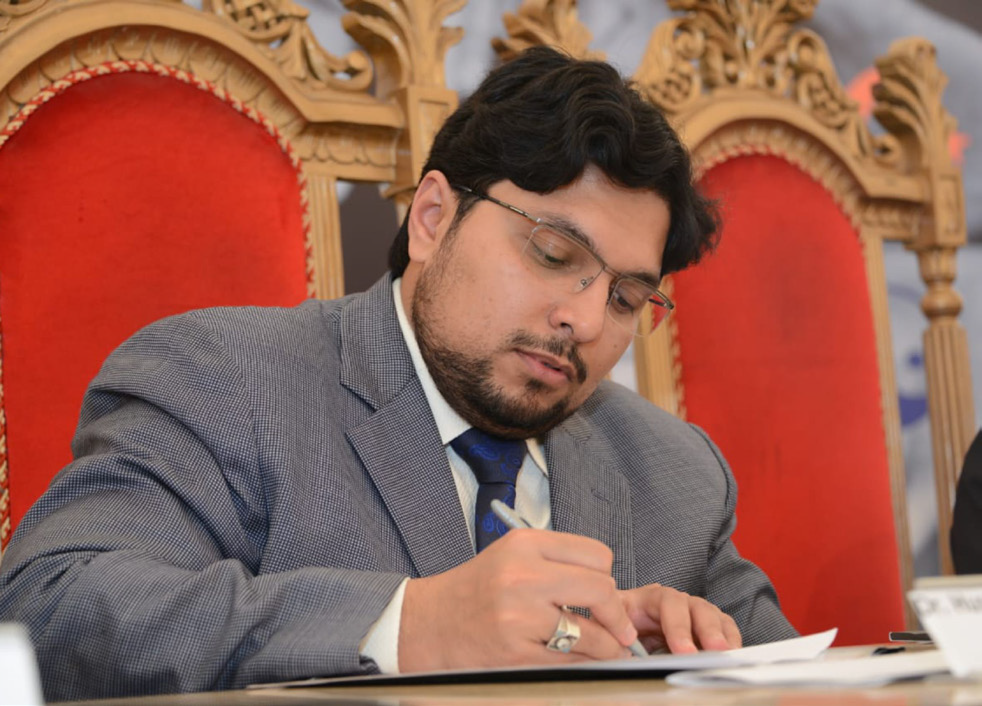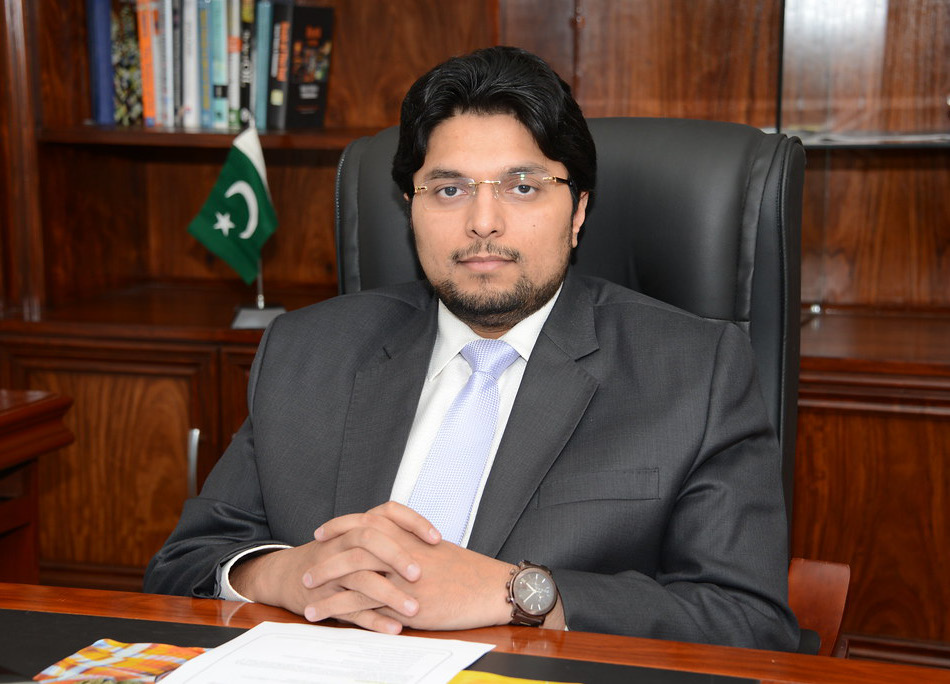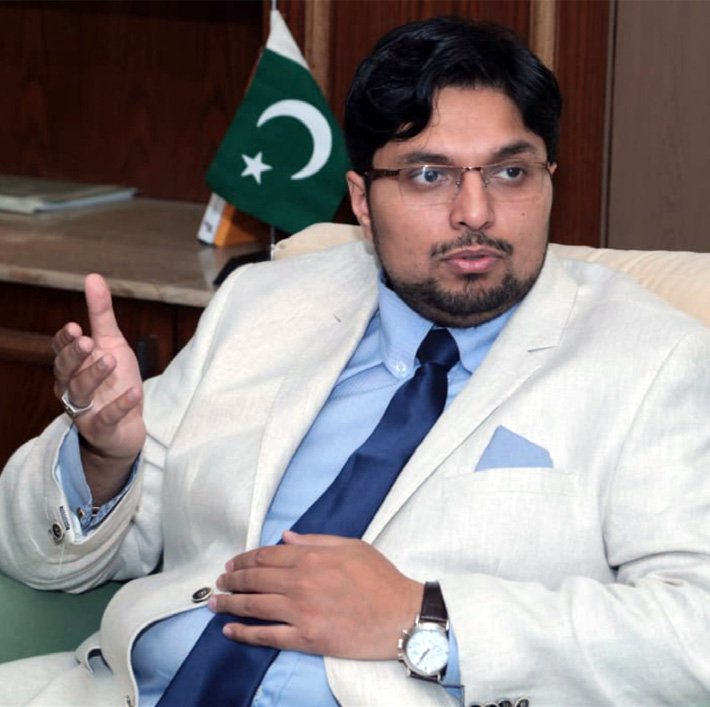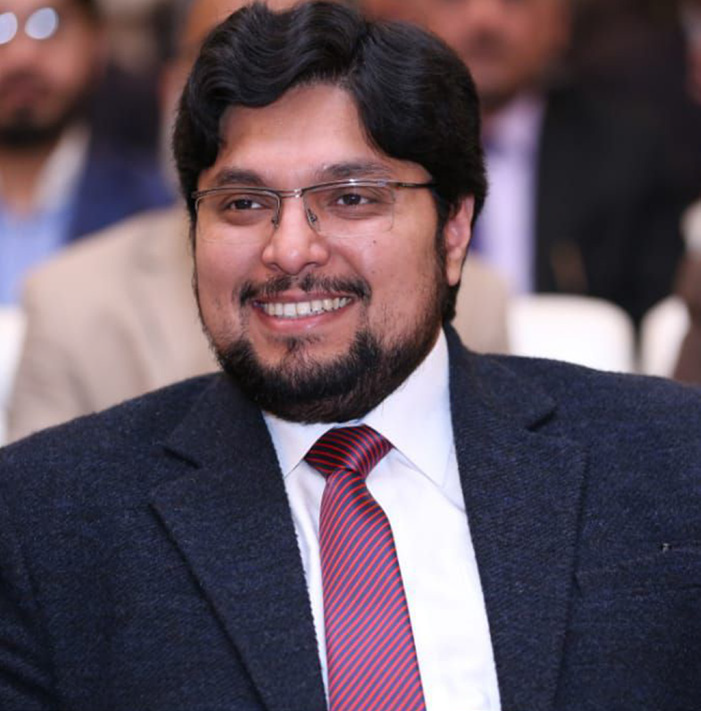DR HUSSAIN MOHI-UD-DIN QADRI
PRESIDENT, MINHAJ-UL-QURAN INTERNATIONAL & DEPUTY CHAIRMAN, BOARD OF GOVERNORS MINHAJ UNIVERSITY LAHORE
“THE ISLAMIC ECONOMIC SYSTEM, THOUGH NOT CURRENTLY ON THE SCENE WITH ITS ENTIRE BEAUTY AND EXCELLENCE, CONTAINS THE POTENTIAL OF BECOMING A COMPREHENSIVE ALTERNATIVE TO THE PREVAILING SYSTEMS.”
Dr Hussain Mohi-ud-Din Qadri is the President of Minhaj-ul-Quran International; he is the Deputy Chairman of the Board of Governors of Minhaj University Lahore (MUL), Pakistan, and Associate Professor in the School of Economics and Finance. He is also serving as Chairman of Minhaj Education Society that is running 650 schools and colleges all over Pakistan, and Aghosh Orphan Care Homes. Dr Hussain Mohi-ud-Din Qadri is the founder and chairperson of Al-Mawakhat Islamic Microfinance and Minhaj Halal Certification Pakistan. He is also associated with the University of Melbourne as senior Fellow for last many years. He is an author of three dozen books and over one hundred articles.
Dr Hussain Mohi-ud-Din Qadri, let us start with yourself by asking how you got interested in Islamic finance on a personal level.
As you know that Minhaj-ul-Quran International has been founded by Shaykh-ul-Islam Prof. Dr. Muhammad Tahir-ul-Qadri in 1980 and he based it on knowledge and education. The objectives behind this step were to revive the values, factors, elements and programmes that had been granted to the Ummah by the Holy Prophet Muhammad (SAW) and had been embellishing the Islamic code of life. Islamic economics was a part of this code. When it was stated by some quarters in Pakistan in the 1980s that Islam does not give any alternative to the existing conventional economic, banking and finance system, Shaykh ul Islam Prof. Dr. Muhammad Tahir-ul-Qadri took it as a challenge and presented a comprehensive Islamic banking and finance model in the form of a book – Bila Sood Bankari (interest-free banking). It was perhaps the first comprehensive book in Pakistan on this subject; published in 1984 and presented to the then government. Therefore, Minhaj-ul-Quran International has contributed a big share to Islamic banking and finance much before it became in vogue in Pakistan.
Secondly, when I was studying the various economic systems during my university education at undergraduate, postgraduate and doctorate levels, I was frequently bothered to see the capitalistic development and evolution, and the rising wealth gap between the haves and have-nots. The rich were getting richer and the poor poorer. Wealth was concentrated into a few hands and as less as 25 per cent in the world use 75 per cent of the global resources and the rest of the 25 per cent resources are shared by the 75 per cent of the total population. Then I felt the need for an alternative system that could rid the world of all these issues. This led to my interest in Islamic banking and finance, inspired and motivated me to study further, contemplate and become a representative of the Islamic economic system. After joining Minhaj University, the first two new departments I established were the School of Islamic Economics, Banking and Finance, and the International Center for Research in Islamic Economics (ICRIE). These platforms have been used to organise Pakistan’s biggest conference of Islamic economics, banking and finance for many years now.
The Islamic economic system, though not currently on the scene with its entire beauty and excellence, contains the potential of becoming a comprehensive alternative to the prevailing systems and steering people out of their economic problems. The principles behind this system are given by the Prophet Muhammad (SAW) that carries divine wisdom. These principles cannot be flawed though the models developed from them may contain human errors as they are established by experts from time to time.
You come from a background of scholarship with an impressive lineage. It is therefore of great instructional value to our readers to know of your thoughts on the juristic approach that Islamic banking and finance has adopted for product development. Are you satisfied with the fleet of financial products offered by Islamic financial institutions throughout the world?
Product development is one of the paramount requisites for the sustainability of the Islamic banking and finance industry at a global level. Without bringing innovative and customer-tailored products, Islamic banking and finance industry would become less attractive for the existing customers and not be able to attain new ones. Now see this from the point of view of new-age customers. The needs and expectations of digital natives and millennials are quite different from their older peers. They are tech-savvy and having access to knowledge at their palms are more sensitive to ethics and social impact of their activities (religious perspective). The current COVID-19 pandemic has exposed the whole financial industry, including the Islamic financial institutions. This epidemic has unveiled the weaknesses in the structuring and development of Islamic financial products and underscored the need for their restructuring and redesigning. It can easily be realised that the existing mechanism and strategy of developing financial products in Islamic financial institutions are not up to the mark.
Let’s come to the first half of the question. We need to highlight the important elements of a great product development strategy for Islamic financial institutions. In my approach, the most important element is Shari’a knowledge or you may say Shari’a principles. For, Shari’a is the essence of Islamic financial products. If a product developer in an Islamic financial institution has robust knowledge of Shari’a and command on Fiqh (jurisprudence) rulings related to all schools of thought, he/she can easily play a role of a cobbler and design a customised, innovative and well-designed product by applying the Shari’a principles. Here, I will recommend the approach of Shaykh ul Islam Prof. Dr. Muhammad Tahir-ul-Qadri who proposes a theory of Taqlid Al-Madhahib – a theory of expansion. In my view, Islamic finance is not a region-specific matter but a global phenomenon that demands a unified and standardised strategy for formulation and development of any kind of Islamic financial products. By following this approach, which has not yet been implemented, Islamic financial institutions can reshape their product development strategy and restructure their financial products to be innovative, economical and be customised.
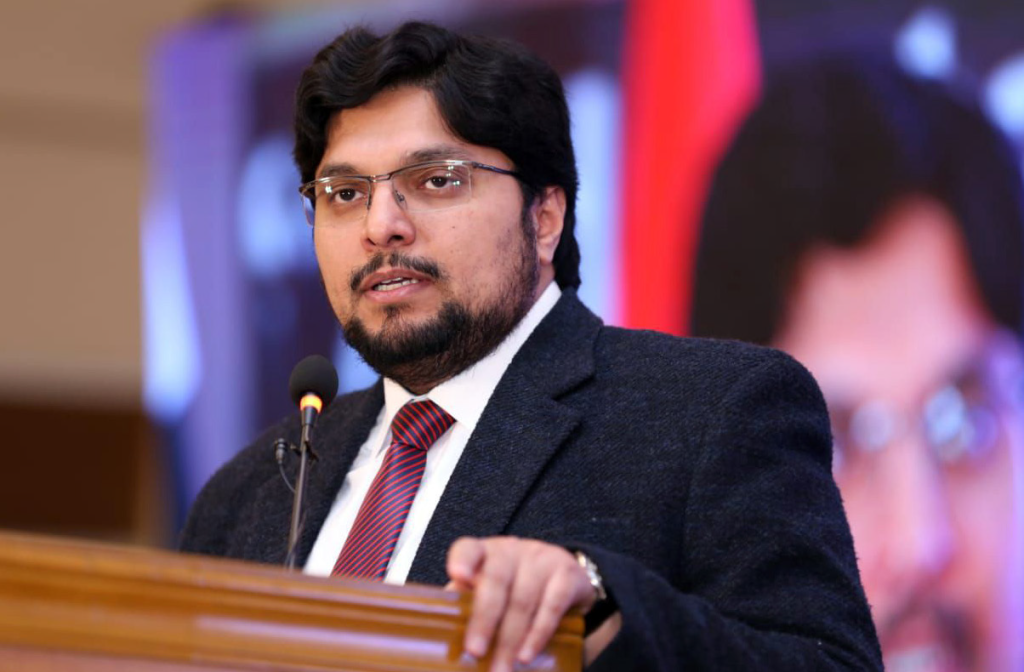
Concluding, I would suggest Islamic financial institutions to revisit their product development strategies and give importance to Shari’a principles. By combining this important element with technology, commercial viability and regulations, a better and appropriate product development strategy are possible.
Minhaj University Lahore started its engagement in Islamic banking and finance rather late (as compared to other universities in Pakistan) but has now emerged as a leading Centre of Excellence in this field. What prompted the university to adopt an aggressive approach to research and learning in Islamic banking and finance?
We are the pioneer in Islamic banking and finance education and only the International Islamic University Islamabad, (IIUI) tapped into this field before us. At Minhaj University Lahore, we have established the School of Islamic Economics, Banking and Finance (SIEBF) in 2014 by introducing a certificate and a PGD course on Islamic banking and finance. In 2015, Minhaj University launched the MS Islamic banking and finance degree recognised by the HEC. And in 2018, we started BS Islamic banking and finance. At that time, it was only MUL that initiated BS Hons in this field. Apart from these developments, we have also established the International Center for Research in Islamic Economics (ICRIE) in 2017 to produce quality and innovative research. In short, Minhaj University laid the foundation of Islamic banking on the academic front, others followed our footprints.
Now, let’s come to the second part of your question. We have established the department not only for commercial purpose, as normally happens in universities, rather, this is a practical application of the ideology of the founder i.e. Shaykh ul Islam Prof. Dr. Muhammad Tahir-ul-Qadri. His ambitious thoughts regarding Islamic economics inspired that the Islamic economic system is the best alternative to the interest-based economic system. The interesting thing is that Islam does not provide any specific model because a model always loses its reliability over time. Rather, Islam gives us principles, guidelines and rules, and by applying these rules any model can be developed as per the need of the time. This is the beauty of Islam and its principles. Likewise, the Islamic economic system can be implemented by applying Shari’a principles and an appropriate model can be evolved for the current era. Due to this uniqueness, we adopted this field as one of our main goals as an institution. Because the Islamic economic system is the solution to the challenges and problems the world is facing today.
“IN MY VIEW, ISLAMIC FINANCE IS NOT A REGION-SPECIFIC MATTER BUT A GLOBAL PHENOMENON THAT DEMANDS A UNIFIED AND STANDARDISED STRATEGY FOR FORMULATION AND DEVELOPMENT OF ANY KIND OF ISLAMIC FINANCIAL PRODUCTS.”
Minhaj University Lahore is part of a larger business-philanthropic conglomerate. Would you care sharing with our readers details of the projects you are involved in for promoting financial inclusion and women empowerment?
Minhaj University was established in 1986 in Lahore. It has 12 faculties and 36 departments varying from Engineering to Health sciences and Economics and Management Sciences to Shari’a and Islamic Sciences. It has some very unique departments, such as the school of Religion and Philosophy, where a degree can be earned in any religious theology; the school of Peace and Counter-Terrorism Studies, which is officially the first-ever department established in Pakistan on the subject. Minhaj University is also the pioneer in establishing an Institute of Spiritual Studies at university level in the whole of Asia.
The other major concern of Minhaj-ul-Quran International is the Minhaj Education Society. That runs 650 schools and colleges all over Pakistan, providing quality education at an affordable price to over 150,000 students through 15000 teachers. Its unique feature is its curriculum, which is very much up-to-date and prepared in the light of true and progressive Islamic teachings and the ideology of Pakistan. Peace, inter-faith and intra-faith relations are also taught in a very polite manner at these institutions, so that students become peaceful citizens who care, respect and protect the dignity of others.
There is a chain of Agosh – Orphan Care Homes across the country established by Minhaj Welfare Foundation.
It works in Lahore, Karachi, Sialkot and other major cities where over a thousand orphan children are being brought up in the best possible way. There are Mother Apartments in each orphanage, where destitute women reside and raise four to five children at a time. When a child gets older than 10 years, he is moved to a dormitory and the woman is entrusted the care of another child. All these children are educated and trained up to PhD level and the institute helps in their job placement or establishing a business of their own.
As no banking industry in the world caters to the needs of small customers nor extends loan without guarantee or mortgage to the unemployed youth for setting up their businesses, we introduced Al-Muwakhat Microfinance. As an independent finance company, in the last five years it has served hundreds of youths by offering interest-free loans and technical support for setting up their businesses. Likewise, it also conducts a competition among business students who develop various business ideas in their educational projects and then it provides seed money for them to materialise viable projects.
Another venture of Minhaj-ul-Quran International, which has empowered thousands of destitute women across Pakistan is ‘Woice’ (Women’s Ownership, Intellectual Collaboration & Empowerment). This Project helps women exclusively in establishing small businesses or cottage industries through donation and training.
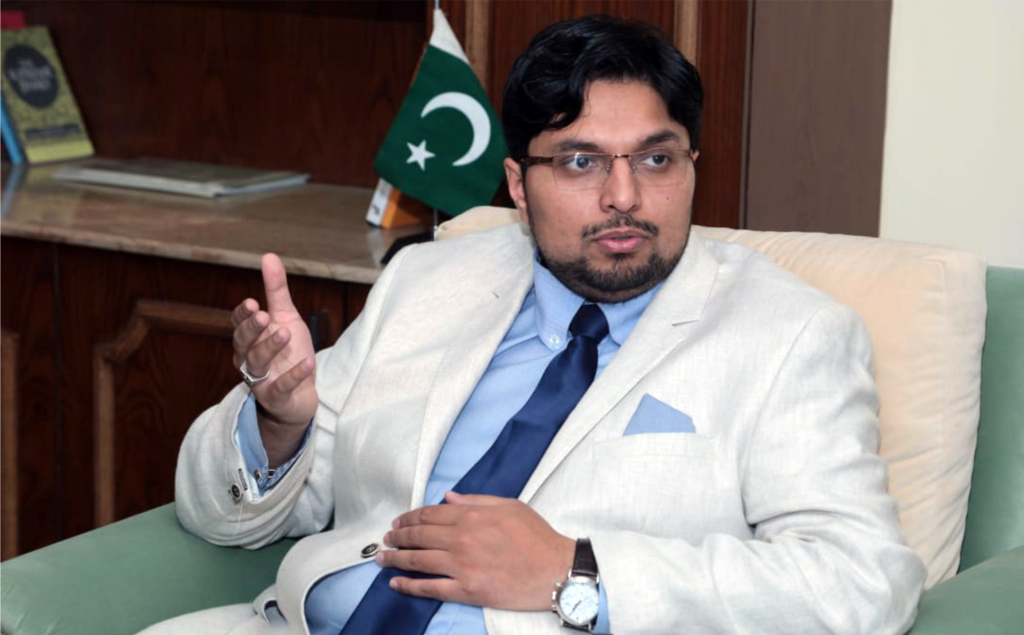
Despite a long-standing demand for the elimination of Riba (Interest) from the Pakistani economy, this remains at best a dream. Do you believe that an economy like Pakistan’s can function with the complete elimination of Riba from all economics affairs and activities?
Today, the world is facing enormous challenges. Few people are ruling over millions and there is poverty, unemployment, unequal distribution of wealth and so on. One of the main reasons behind these problems is the Riba (interest) based economic system in vogue all around the world. This system has trapped economies and led them into a deep well from where the possibility of coming out is very low. Let’s take the example of Pakistan. As per the numbers, the debt to the GDP ratio is around 80% and this is due to the interest-based loans and transactions. It means Pakistan is allocating more as interest payment than developmental expenditures and with each passing day their debt to interest ratio is increasing.
Now, coming to the main point of this question, can Pakistan function with the complete elimination of Riba? Before answering this, I would share the growth trends of Islamic banking in Pakistan. Since its inception in the country, Islamic banking has been growing with each passing year and the market is maturing in regulatory perspective as well. So, the journey is on the way. It can be easily judged that the practice of Shari’a principles in banking is possible in Pakistan. It is worth mentioning that even though Islamic banking is growing, the market share is still very low. This is due to the lack of a strong will by the government. The central banking system is conventional and the government makes transactions and does contracts through conventional banks while also providing interest-based loans. In reality, the authorities have not paid much attention and are not seriously interested in the Islamisation of the financial system of the country. A strong determination of political leaders and authorities is paramount for the conversion of the existing financial system into an Islamic financial system. Pakistan has the human resources, institutions, ability and capacity as well as a desire among its people for this objective. That’s why with a strong political will coupled with appropriate policies and strategies, it is possible to implement an Islamic economic system in the country.
What lessons other countries can learn from Pakistan if they want to develop Islamic banking and finance?
The market share of the Islamic banking industry is around 15% in Pakistan. This means that the market share is comparatively lower than the conventional banking industry. As I mentioned in the previous question that the government has not paid much attention to this sector, but the sector is still growing at a constant rate. Moreover, regulations are also in place regarding the Islamic financial institutions. By considering this scenario, positive as well as negative aspects, can be drawn from the development of Islamic banking in Pakistan.
On the positive side, it can be observed that Islamic banking has great potential in terms of growth and other countries should also tap into this industry. Moreover, Pakistan has developed robust regulatory guidelines for Islamic financial institutions, paving the way for the industry to progress smoothly. On the negative side, it has been realised that without the involvement of the government Islamic banking cannot be developed in the true letter and spirit, though there is a high demand and great potential. Support and attention from authorities is paramount for the development and growth of the Islamic finance industry in any country.
The first World Islamic Economics and Finance Conference organised by Minhaj University Lahore came up with a comprehensive framework to develop a global Shari’a Standard based on the concept of Taqlid al-Madhahib (following of multiple juristic schools of thought) rather than taking singular juristic approaches in different jurisdictions for development of Islamic banking and finance. What are the follow-up steps taken by MUL or the conference secretariat to promote the idea?
The concept of Taqlid al-Madhahib (following multiple juristic schools of thought) was proposed by Shaykh ul Islam Prof. Dr. Muhammad Tahir-ul-Qadri at the first World Islamic Economics and Finance Conference (WIEFC) organised by Minhaj University Lahore in 2018. This proposed theory of expansion was considered a base for the development of global Shari’a Standards by following multiple juristic schools of thought for ease and flexibility rather than taking a singular juristic approach for a specified region that leads to rigidity in standards.
Minhaj University has taken some steps to convert the idea into reality. One of those steps is an agreement with the international standard-setting body i.e. Accounting and Auditing Organization for Islamic Financial Institutions, AAOIFI. It was decided that both entities will work for the standardisation of Islamic financial products. Another step was taken in the Second World Islamic Economics and Finance Conference (WIEFC) in 2019 by establishing a steering committee for the formulation of an Islamic Economic Forum for discussion and finding solutions to the challenges faced by the Islamic finance industry around the world and standardisation of Islamic financial products was one of them.
In the third World Islamic Economics and Finance Conference (WIEFC 2020), the Islamic Economic Forum has been established and things are moving in the right direction. Apart from these developments, Minhaj University is working with different national and international stakeholders and institutions for achieving the goal of development of global Shari’a standards based on the concept of Taqlid al-Madhahib.
There has been a lot of intellectual activity on social media and other online platforms, suggesting a number of Islamic financial solutions in the wake of COVID-19 pandemic. Do you think that Islamic banking and finance has the potential or capacity to offer a globally relevant financial solution to the post-COVID world?
With an alarming speed, the exponential growth of the COVID-19 pandemic has delivered an economic shock at the global level with a magnitude that has led to severe recession in the majority of the countries worldwide. As per the World Bank estimations, there is a possibility of a 5.2 per cent contraction in the global GDP in 2020.
Islamic finance is associated with Maqasid al-Shari’a (objectives of Shari’a) and this is the foundation of Islamic finance. It means that Islamic finance always has the potential to provide solutions for problems faced by the people. COVID-19 is considered as the most crucial crisis, even worse than the previous financial and other crises, as it has shackled the economies all around the world. Islamic finance in general and Islamic social finance, in particular, has real potential and power that can be harnessed to combat this pandemic. With the blend of technology and Islamic social finance, amazing things are possible. Islamic crowd-funding, Zakat-based micro-financing, waqf-based Sukuk and many other opportunities can be employed. Along with Islamic social finance, through the restructuring of Islamic banking and finance products and models, the industry can come up with new solutions as per the need of the present time. Taking the whole scenario into account, especially the current situation, it becomes imperative to incorporate the element of social welfare while restructuring Islamic financial products.
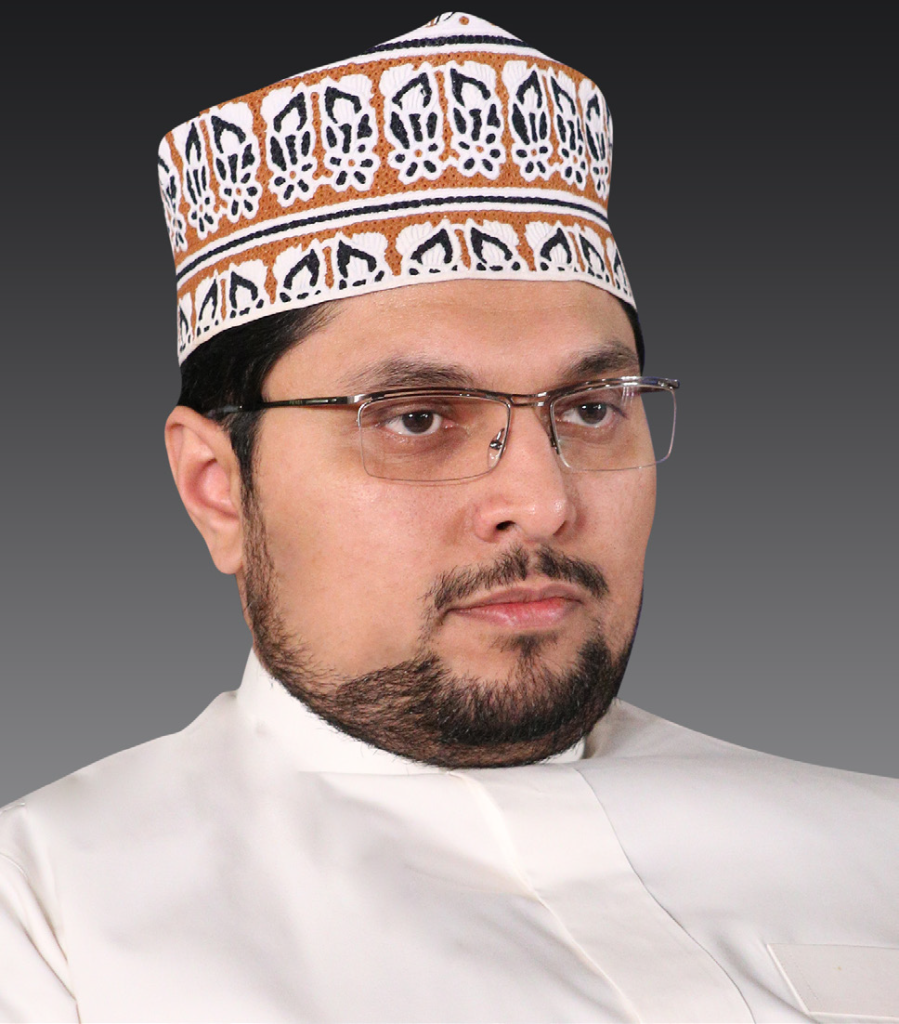
“WITH THE BLEND OF TECHNOLOGY AND ISLAMIC SOCIAL FINANCE, AMAZING THINGS ARE POSSIBLE. ISLAMIC CROWD-FUNDING, ZAKAT-BASED MICRO-FINANCING, WAQF-BASED SUKUK AND MANY OTHER OPPORTUNITIES CAN BE EMPLOYED.”
MUL has been recognised with numerous national and international awards for its endeavour to promote Islamic banking and finance in a socially responsible manner. Would you like to share details of such accolades?
Islamic banking and finance has excellent potential to empower people and eliminate poverty, which is an objective of an Islamic society. The beauty of the Islamic economic system is that it provides everyone with an opportunity to participate in and contribute to the empowerment of people in the society. In the last five years, MUL has become a platform for progressive research in Islamic economics, training human resource, and organising international conferences, symposiums and workshops on Islamic economics, banking and finance to promote the capability of this system as an alternative to the economic systems in vogue in the world that are failing to solve social problems.
In recognition of its contributions in this field, MUL has recently been awarded the GIFA Excellence Award in Islamic Banking and Finance 2019, during a ceremony held at Cape Town, South Africa. In 2018, MUL also received the Global Good Governance Award for Social Responsibility in Higher Education in Kuala Lumpur, Malaysia.
We all know that in the previous eras the aim of education was to literate the society and train the nation. However, in recent times the education sector has become a business. Following the ideology of Shaykh ul Islam Prof. Dr. Muhammad Tahir-ul-Qadri, MUL’s vision is to provide education and training with social responsibility to society members. MUL keeps its fee packages very economical in order to make education affordable for all segments of the society. On top of this, MUL has been offering scholarships and financial support to students who cannot even afford the low fees. The worth of scholarships and financial support is around PKR100 million per annum, which indicates MUL’s social responsibility. During COVID-19, MUL gave additional concessions worth millions of rupees to the students.
In pursuit of our tradition of philanthropy, MUL is the only institute in Pakistan who has neither laid off any staff member nor deducted salaries of any employee for a single day during the pandemic. The same rule was practised in all other institutions of Minhaj-ul-Quran International.
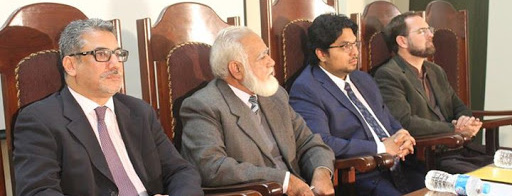
There is little doubt about the huge role technology is going to play in the post-COVID-19 era. How is MUL placed in terms of the usage of technology for pedagogical purposes?
If we look at the global trends in education for the last 20 years, technological advancements have been causing vital pedagogical shifts, ensuring the availability and accessibility of academic resources such as libraries and research works. Many factors have, however, hindered such trends to mushroom in many countries. The crisis that appeared with COVID-19 has paved a fast way for education to shift from physical to the virtual platform, making online education the need of the day.
Education institutions have been facing many challenges varying from technology, software, learning management systems, to the non-availability of policies and SOPs, non-availability of android and apple mobiles and laptops, lack of internet accessibility and unskilled faculty, and Pakistan is no exception. Minhaj University Lahore responded very quickly and efficiently to the announcement of the Higher Education Commission (HEC) of Pakistan to shift education to virtual teaching and devised all policies and SOPs, and was able to offer online classes within two weeks using MUL’s own customised campus management system, (a software that streamlines all the functions of the university and provides a platform to the faculty and students to interact), developed by MUL’s software engineers. For your interest, let me share that MUL started offering more than 1000 online courses taught by around 500 faculty members.
The Higher Education Commission Pakistan acknowledged MUL’s Online Readiness (a metrics introduced by HEC to assess whether a university can offer online classes or not) with a score of 100 per cent and was placed in the list of the top universities of the country.
It is with pleasure that I inform you that MUL has launched the world’s first-ever Robotic Library, where robots will keep and maintain book catalogues and provide the books to students and faculty. The Robotic Library will manage around five million books of all kind. This library is currently under construction and will be completed in the coming year.
In addition to MUL’s adoption of the online education system, all colleges and schools of Minhaj-ul-Quran International have also started offering their classes online during the COVID-19 under the umbrella of Minhaj Education Society.
What is your focus for the next 12-18 months in terms of achieving personal goals and for the organisations and projects you have been involved in, especially in these uncertain times? What changes do you hope to implement?
I intend to accomplish two types of goals side by side – one pertains to organisational matters and the other academic in the form of books and research works. My immediate organisational priorities are related to strengthening institutions during the ongoing unpredictable and strange phase of time when COVID-19 is affecting almost every sphere of life. Driving out MUL and Minhaj schools, Halal Certification, Agosh Orphan Care-homes, and other projects from the ongoing crisis. As COVID-19 has necessitated taking education and research to the online domain, I’ll work to digitise all aspects of all institutions that come under my purview during the next one and a half years. This digitisation will also help in case of closure of campuses due to other crises like terrorism, weather, etc. Our technical division is working on a comprehensive and excellent model for an ‘off-campus’ technology-based platform for effective educational activities. Similarly, a new worldwide charity organisation is in the pipeline that will be taken to the digital platforms enabling them to fill the gaps in society.
“THE HIGHER EDUCATION COMMISSION PAKISTAN ACKNOWLEDGED MUL’S ONLINE READINESS WITH A SCORE OF 100 PER CENT AND WAS PLACED IN THE LIST OF THE TOP UNIVERSITIES OF THE COUNTRY.”
There will be a focus on setting up a new chain of schools, the Pak Urdu Schools System, that is being launched to meet the needs of the students, who drop out of schools because of language barriers. The government has introduced English as the medium of instruction without ensuring the availability of teachers capable enough to effectively convey concepts of their respective subjects to their disciples in the English language. A new syllabus for all subjects is being prepared for our new advanced school system with an affordable fee structure in which the terminology will be in Standard English but the concepts will be explained in Urdu so the students can easily grasp the subject and adopt English terms as they go to higher levels of studies. Work is also going on for establishing a chain of Minhaj Colleges of Management Technology (MCMT) in the next few months.
As far as my personal academic goals are concerned, around a dozen of my new books and research works are in the pipeline. These are related to Islamic economics, digital economy, modern economics, tasawwuf (Sufism), philosophy, Islamic thought, human migration to space from an Islamic perspective and others covering various political, social, economic and religious aspects.
As an influential leader in Islamic banking and finance and academia, what is your take on the leadership crisis in the Muslim world?
Unfortunately, it is a fact that the Islamic banking and finance industry does have organisational heads, managers, bosses and teachers but lacks leaders. Leaders are those who lead from the front and train the next generation. They don’t remain entangled in solving the day-to-day affairs rather they are visionaries and able to foresee the future, which differentiates them from managers. They also know how to inspire a generation. The industry is, however, deficient in leaders who can envision Islamic banking and finance in the next 100 years and are capable to drive the industry towards that destination. Unfortunately, the people we perceive as leaders in our environment and industry are those who are dragging us towards the past instead of leading us to the future. There is also a want of comprehensiveness. Such that, some people come from religious schools and only have a seminary background, then there are finance men who are well acquainted with modern finance but lack religious education. The combination of both backgrounds is very rare. This combination produces people with a vision of the future; who can foresee modern requirements, technological demands and comply them with Islamic principles. Our Islamic finance institutions are in a need of such people with an amalgamation of religious and modern education. Minhaj University is, fortunately, creating such professionals since 2014. We have experts in Shari’a sciences in the form of graduates from the Faculty of Shari’a & Islamic Sciences as well as experts in economics, banking and finance, coupled with the technological support of our Islamic banking and finance department, resulting in excellent graduates with both expertise.
Same is the issue with the Muslim world. We do have politicians, businessmen and feudal lords who are running governments but not leaders. People are brought into power through manipulation and the support of powerful groups. Genuine leaders are those who inspire the masses and who the people look up to for guidance. Every word of them is considered as a vision by the masses. The Ummah lacks such leaders and that is why it is facing decline, and political, economic and moral as well as capability crises.
Now the question is how does a society produce leaders? This requires an effective education system. We have to reform the system, the factory that gives rise to dynamic personalities and leaders. As we have discussed earlier, the education system in vogue is not catered to allow independent thinking and thus those graduating from this system become torch-bearers of western ideologies. A person who is not a representative of the values and ethics of his nation cannot lead his people.
The second important element is training. Regrettably, our institutes lack the trends – conscience, integrity and morality – found in institutions around the world and thus we fail to produce great leaders. Personalities like Umar bin Abdul Aziz emerged in the Ummah due to the company and training by the Companions of the Prophet (SAW), and the upbringing by great mothers. These kinds of mothers and leaders can also be given by our educational system provided it is reformed in the light of Islamic vision and values. We may then be able to get visionary and capable leaders with an integrity of character.

There is a growing strand of research on what is known as ‘spiritually-informed management theory.’ As you hail from a family that has a long history of leadership in Islamic spirituality, would you care to share with our readers how spirituality can be used as an efficiency-enhancing tool in Islamic banking and finance?
The subject is focused on the whole world and it is a hot topic for those writing on leadership and organisational matters. This may be a new subject for the Western world but not for those who understand and/or believe in Islam. Surveys and interviews conducted in many universities reveal that spiritually motivated employees fare better than those motivated non-spiritually or by other factors such as finance, work, self-satisfaction, etc.
The concept of spiritually-informed management demands that the vision, objective and leadership of an organisation from the top managers down to all the employees in the hierarchy, are spiritually informed and only then can this concept come into being. Purposefulness plays an important role in this concept. If the very purpose of an organisation is materialistic, i.e. to earn money, gain power or defeat someone, then its objectives or management can never be spiritually motivated. If the purpose of an organisation is spiritual, philanthropic or social benefits then the training of its people will be automatically spiritually informed.
Rather there are two new terminologies gaining currency in organisations these days, which carry forward this concept of spiritually-informed management. One is the benefit organisation and the other is the learning organisation. Benefit organisations are being registered in many countries under a separate set of laws and they make their objectives clear from day one that though they will earn a profit their basic purpose is to serve humanity. A serious amount of their profit goes to the welfare of the society. In learning organisations, each staff member is connected with others like a family – each one taking care of the other in financial, education, health, welfare matters, etc. In a family crisis, the organisation involves itself in it as the head of the family to solve their problems. And all the employees, well-informed of the purpose are tied to the same, connecting them to each other. They are not driven by managers but rather by leaders who inspire them.
Such organisations are the need of time and I can say from the core of my heart that by the grace of God, Shaykh ul Islam Prof. Dr. Muhammad Tahir-ul-Qadri founded Minhaj-ul-Quran International as an organisation that qualifies for all definitions of a spiritually-informed or learning organisation.
Islamic banking and finance institutions may attain the status of spiritually- informed entities by considering three or four factors. Most people join Islamic banks to earn a salary as it’s a necessity of life, but it should not become their top priority. Their motivation should be that they are doing something for Allah and His Prophet (SAW), for their religion and the welfare of humanity. They are doing something that is ethically and morally sound, and have the spirit to do their utmost in bridging the wealth gap between the haves and the have-nots. The person should then give attention to his character, ethics and spiritual growth, while making himself professionally sound. In other words, success in the industry should not be a source of pride and arrogance, instead this success should enable the person to become humbler, work harder and feel more enthusiastic to help people. The person should not indulge in leg-pulling rather should help others, whether individuals, new teams or entities, to grow. Each supporting the other for a greater cause. Along with professional career development, one should keep an eye on the personal attributes and improve the same. This is how the Islamic banking and finance industry will get spiritually-informed professionals, and institutes will become learning organisations.
The current and coming era requires spiritually-informed individuals and organisations; and such organisations will not only be more respectable in the eyes of Allah and His Prophet (SAW) but will also be able to do more for the welfare of humanity. The Islamic economic system can be distinguished from the other systems because of its ethics, morals and spirituality. It prefers sacrifice over profit, teaches to spend on the poor, it calls for living for others and not just for oneself. The Islamic economic system stands on the foundations of spiritualism and Islamic financial institutions must also make spirituality, ethics and morality as their foundation to become true representatives of the Islamic economic system.
Would you like to give a message to the younger generation of Islamic banking and finance practitioners?
I would like to say to the younger generation of Islamic banking and finance practitioners that they have to work hard, think and create innovative Islamic financial products and business models. They have to act as a human being and care for others, and always remember the life hereafter and its rewards. You may get less profit in this world but there will be greater reward for you in the hereafter. Moreover, you have to keep in mind the essence and objective of the Islamic financial system, which is empowering people, taking them out of the poverty circle and uplifting the level of the deprived hence achieving Maqasid Al-Shari’a.
At the end, we would like to ask about the model you presented at an international conference held recently. The model involved a combination of Zakat and microfinance to alleviate poverty and solve unemployment problem. Would you share some of its details with our readers?
The model that I presented in the conference suggested that at least 3 million employment opportunities can be created in just five years by meaningful use of the collected Zakat funds worth PKR2500 billion. According to my research on Zakat and Microfinance: A Novel Way towards Alleviation of Poverty in Pakistan, within 5 years 3 million people can be integrated into the economic system by changing the non-transparent Zakat distribution system and giving away funds as loans in the form of merchandise through SMEDA (Small and Medium Enterprises Development Authority). In this way the destitute population can start businesses and as a result reduce unemployment.
Also, Zakat collectables could be used for the provision of interest-free loans to zakat recipients with a focus on unemployed people. In this way, they will be able to come out of the poverty circle and themselves become zakat givers rather than remain recipients forever. I also suggested that the government takes robust steps to regain the trust of the public so that zakat collectables could be increased to their potential numbers.
“AT LEAST 3 MILLION EMPLOYMENT OPPORTUNITIES CAN BE CREATED IN JUST FIVE YEARS BY MEANINGFUL USE OF THE COLLECTED ZAKAT FUNDS.”
